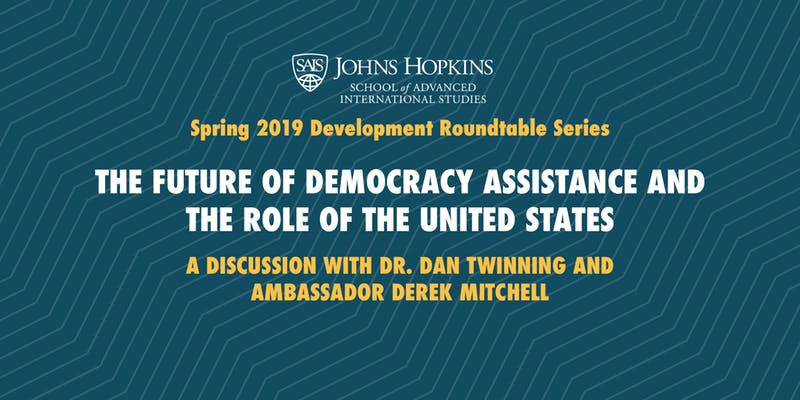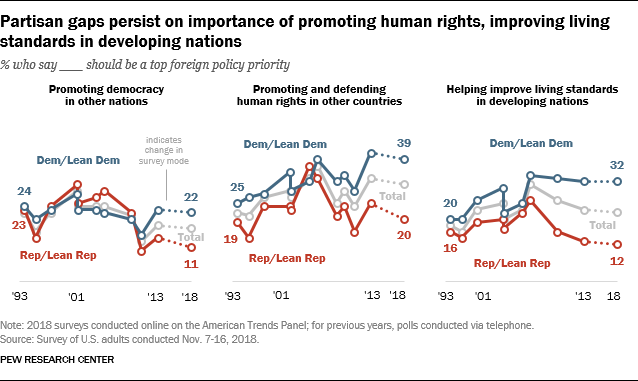
Differing approaches to foreign policy entail different stances on democracy promotion, observers suggest.
For example, the Restraint school of thought advocates for a more “realist” approach to soft power considerations such as the active promotion of US values like human rights and democracy around the world, while Global Leadership scholars, in contrast, argue that this pillar of US grand strategy must not be weakened, Ionut Popescu writes in A Middle Path? US Public Opinion and Grand Strategy. A recent Pew poll found limited support for the ideas that “promoting and defending human rights in other countries” and “promoting democracy” should represent top US foreign policy priorities.
Americans have long been wary of the value of promoting democracy and human rights or improving the living standard of people in poor countries, Bruce Stokes writes for Chatham House. In 1993, just 22% of Americans thought democracy promotion should be a US foreign policy priority. In 2018 even fewer, only 17%, valued such efforts highly.
In a November Pew Research Center poll on foreign policy, 72% of Americans said taking measures to protect the US from terrorism should be a top priority followed by 71% who chose protecting the jobs of American workers. At the bottom of the list of 26 topics was promoting democracy in other nations.

With the rise of populism around the world and democratic backsliding in recent years, what is the future of democracy assistance and the role of the United States moving forward? Join a conversation on the topic, above, featuring Dr. Daniel Twinning, President of the International Republican Institute (IRI) and Derek Mitchell, President of the National Democratic Institute (NDI).
Wed, April 3, 2019. 12:30 PM – 2:00 PM EDT. RSVP
Location
Bernstein-Offit Building (BOB) Room 500
1717 Massachusetts Avenue Northwest
Washington, DC 20036







